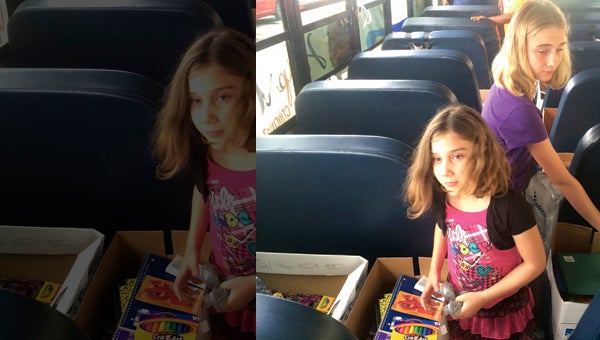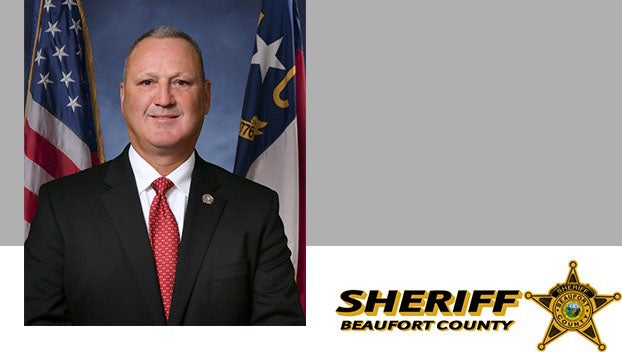COMMUNITY COALITION: Networking initiative to meet student needs
Published 6:51 pm Tuesday, September 2, 2014

JONATHAN ROWE | DAILY NEWS
EXISTING RESOURCES: At this year’s Stuff the Bus campaign, Chocowinity Middle School student Courtney Boyd and Chocowinity Primary student Kaitlyn Boyd came aboard the bus to help fill it with school supplies. Stuff the Bus is one of many resources in the community that exist to aid students in need. The Bright Futures initiative will utilize those resources to meet specific needs of students in Beaufort County.
An initiative brought to the area by PotashCorp-Aurora will utilize community resources and networking to aid students in the Beaufort County School District.
Bright Futures USA, a nonprofit organization started in Joplin, Mo, will be implemented in Beaufort County through framework that connects local businesses, faith-based organizations and residents to meet specific needs of students in the school system, said Ray McKeithan, manager of public affairs at Potash.
In Joplin, the program was established as a rapid response system to identify the needs of students who may have specific barriers to overcome. From that, community resources would be collaborated to meet those needs. This, ultimately, allows students and teachers to focus on achieving success because teachers will spend less time addressing the needs of students and more time on classroom instruction, according to Dr. C.J. Huff, superintendent of Joplin Schools.
Huff said the framework helps schools and communities bring about cultural change through student success, fostering a community where education is valued and responsibility for student success is shared. It operates with the belief that when communities give their time and resources in their schools, students are more likely to stay in school through graduation, giving them a higher degree of self-worth and confidence and encouraging them to set and reach goals in the future. This facilitates students growing up to be better citizens, quality employees and influential leaders in the their communities, he said.
Three tiers of community resources will ensure the program’s success, McKeithan said. These include the utilization of existing resources, networking through social media and an angel fund, a base of money that will aid in the purchase of items needed for students. Potash has committed $50,000 toward the successful launch of the program in Beaufort County, which includes initial startup costs, some administrative costs and seed money for the angel fund, McKeithan said.
Last year, Potash donated almost $1 million throughout the region in cash donations, sponsorships and in-kind contributions
“The company really believes in this,” McKeithan said. “I think it’s unique — the relationship we have with the Beaufort County community — because we count on their support as well. Community investment is one of our core values along with running safe operations and being environmental stewards. We give back where we live and work and Bright Futures is an exciting way to help make that happen.”
McKeithan said the Beaufort County School Board approved the framework in association with the Washington-Beaufort Chamber of Commerce at a school board meeting last Monday night. It was decided that the schools and personnel will be responsible for identifying the needs and the chamber, through its community network, will aid in fulfilling the need.
WBCOC Director Catherine Glover said the chamber hopes to familiarize people with the Bright Futures initiative and connect everyone in the community.
“We are partnering with the school board and with everybody in the community, and we are kind of going to be the networking piece,” Glover said. “Our schools are educating our future workforce and where we come in is we know if these students’ needs are being met and we can help them in any way we are helping the next workforce.”
McKeithan said a community advisory board, a volunteer group comprised of representatives of clergy, nonprofit organizations and business and community leaders, will be established to oversee successful implementation of the initiative.
“Because it’s so important and because there are immediate needs, we want to get this started as soon as possible,” McKeithan said. “There will be a community breakfast to present the program in an official capacity in an effort to educate, inspire and get people involved.”





